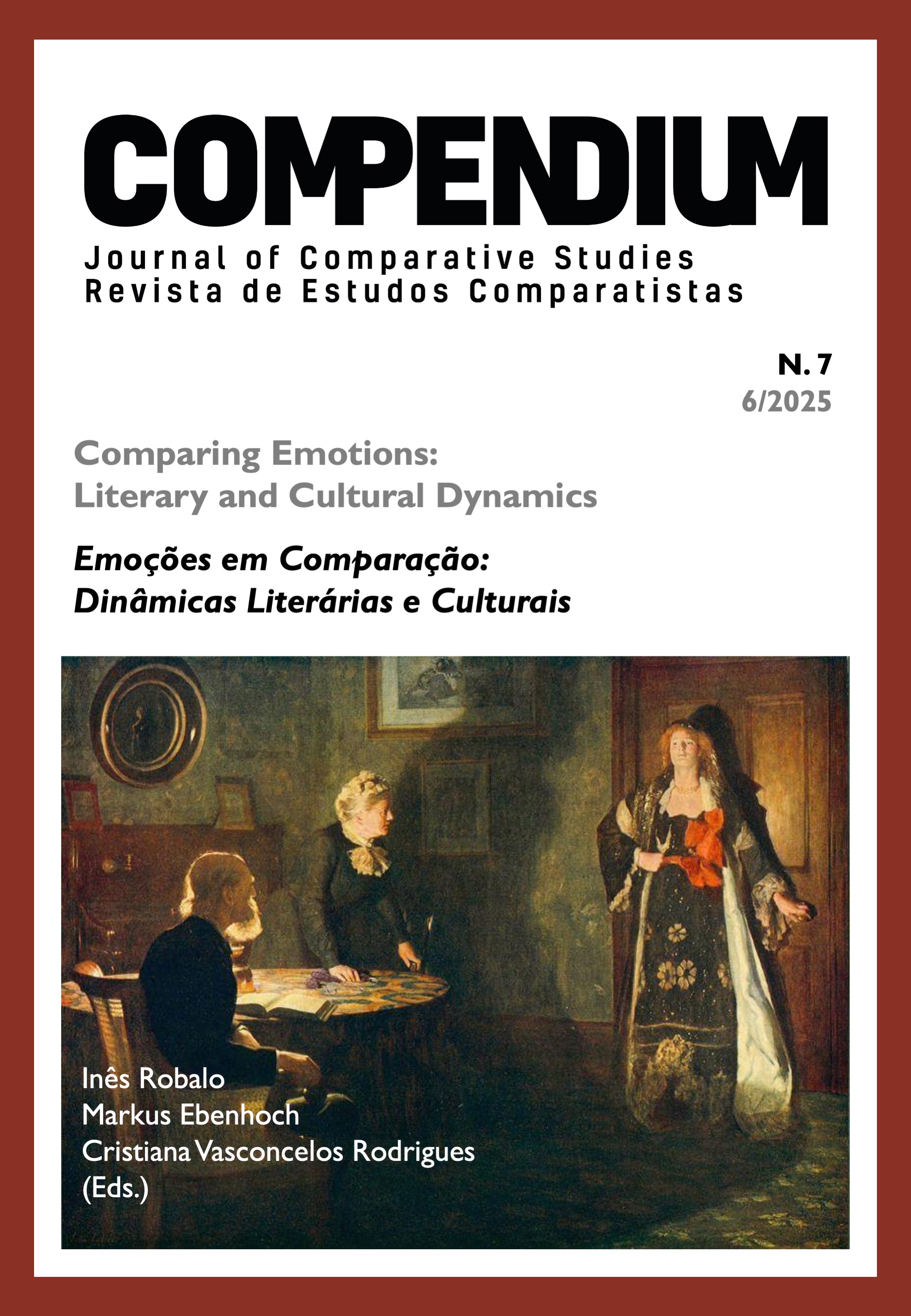Call for Articles: Compendium N.º 7
Deadline for submissions: 30 November 2024
Comparing Emotions: Literary and Cultural Dynamics
Deadline for submission of original articles: 30 November 2024
Publication: June 2025
Editors of this issue:
Inês Robalo (University of Lisbon, Portugal)
Markus Ebenhoch (University of Salzburg, Austria)
Cristiana Vasconcelos Rodrigues (Open University, Portugal)
This issue of Compendium follows suit with the affective turn taking place in the Humanities over the last two decades. We are seeking contributions that explore the representation of emotions in literature and on the aesthetic and critical dynamics such representations generate in the study of narrative and in the codification of emotions. In fact, as Marianne Liljeström mentions, the focus on affect and emotionality within the humanities veers the attention towards “the sensual qualities of being, and the capacity to experience the world in profoundly relational and productive ways” (2016: 16). And Sara Ahmed contends in The Cultural Politics of Emotion that by tracking “how emotions circulate between bodies, examining how they ‘stick’ as well as move” (2014: 4), it becomes possible to identify “affective economies” (2014: 46), an exchange arena between the individual and the social.
In literary studies, in particular, the mapping of the relationship between literature and emotions has been a longstanding point of interest. Indeed, the way emotions are represented and dealt with in fictional narratives has been at centre stage in the establishment of literary genres and aesthetic innovation. In this regard, the sentimental novel, the melodrama, the Bildungsromanare all genres in which emotions are at the forefront of discussion and inform their aesthetic and narrative principles. From the perceived excess of emotionality, which catered to the categories of the sublime and the melodramatic (Brooks 1995), we also come across strategies of restraint and withholding of emotion (for instance, Joyce’s “scrupulous meanness” and Brecht’s “Verfremdungseffekt”), which constitute only a fraction of the rich emotional dynamics brought about by modern and contemporary literature. Furthermore, if one considers non-fictional texts, genres such as the pamphlet and the manifest come to the fore, many of them emerging in the context of polemics, where emotionally invested word battles take place.
We invite contributions with a comparatist approach looking into the representation of emotions in both fictional and non-fictional texts, which offer a reflection on the following topics:
- What can be understood by the narrativization of emotion;
- The role of focalization in the literary shaping of emotional responses;
- The relationship between emotion and rhetorical figures;
- Emotions and argumentation in fictional and non-fictional texts;
- The textual relationship between affect, emotion, feeling, and reason;
- Emotions in philosophical discourse.
References:
Ahmed, Sara (2014). The Cultural Politics of Emotion (2 ed.). Edinburgh University Press.
Brooks, Peter (1995). The Melodramatic Imagination. Balzac, Henry James, and the mode of Excess (2 ed.). Yale University Press.
Liljeström, Marianne (2016). “Affect”. The Oxford Handbook of Feminist Theory, Lisa Disch and Mary Hawksworth, 16-38. Oxford University Press.
Submitted articles may be written in English, Portuguese, Spanish, or French, and should range between 6,000 and 8,000 words, including notes, references, an abstract of 150 to 250 words, as well as 4 to 6 keywords. Authors must follow the formatting guidelines listed in the Submissions section under Author Guidelines on the journal’s website. Submissions must include a separate document containing a short biographical note of the author, up to 150 words, and their ORCiD number.
Online submission: to register and submit your article for peer review, please follow the hyperlink Make a Submission on the Compendium homepage by November 30, 2024.

